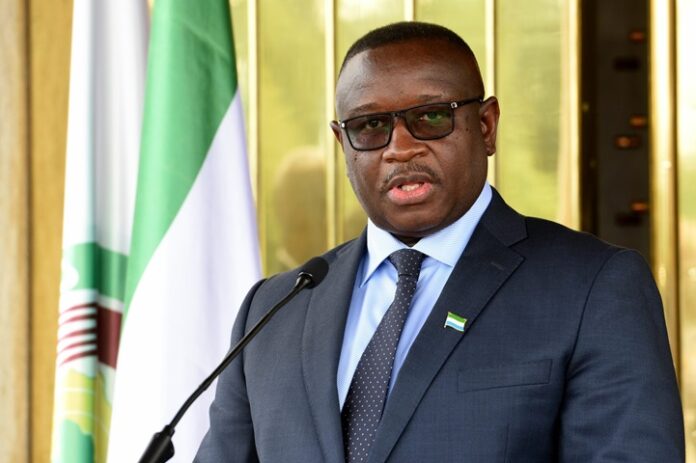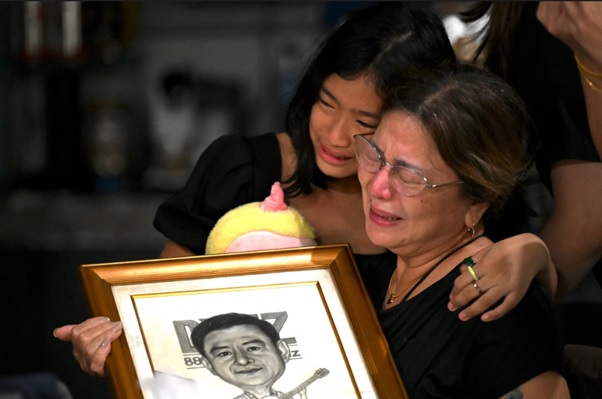-A Commentary
By Lyndon J. Ponnie, Liberian Journalist
General and Presidential elections are slated for Saturday, 24 June 2023 in Sierra Leone. Serious ethnic tension is imparting the processes leading to holding the elections. The Sierra Leone elections have always been a competition between the two largest ethnic groups – Temne and the Mande.
According to the World Bank, the estimated population of Sierra Leone as of 2021 is approximately 8.1 million people.
Sierra Leone is a multi-ethnic country with several major ethnic groups. The largest ethnic group in Sierra Leone is the Temne, who make up approximately 35% of the population. The Mendes are said to be the second-largest ethnic group, comprising approximately 31% of the population. Other major ethnic groups include the Limba, Kono, etc.
Sierra Leone has experienced several ethnic and political crises over the years, including a brutal civil war that lasted from 1991 to 2002. While the country has made significant progress in terms of peace and stability since the end of the civil war, there are still underlying tensions and grievances that could potentially lead to new conflicts.
The ethnic crisis in Sierra Leone is primarily driven by tensions between the two largest ethnic groups in the country, the Temne and the Mende. These tensions have been exacerbated by political competition, economic inequality, and historical grievances over land ownership and access to resources.
In the context of elections, these ethnic tensions can play a significant role, as political parties often rely on ethnic identity to mobilize voters. This can lead to a zero-sum game, where one ethnic group perceives another as a threat to their political power, and vice versa. This dynamic can fuel conflict if it is not managed carefully. This kind of thing is gradually rearing its head in this beautiful West African nation.
The Election Commission of Sierra Leone has reported that 3.4 million of the over 8 Million Sierra Leoneans have registered to vote. This is the group that politicians want to win for which they are being manipulated.
Even though we are in election times already, but to prevent the ethnic crisis from escalating after these elections and causing violence, it is important for the government- whoever wins, to address the underlying causes of the tensions, such as economic inequality and land ownership disputes. It is also crucial for political leaders to promote a message of unity and inclusivity, rather than relying on ethnic identity politics. What is happening in Sierra Leone is a time bomb ticking. Politicians from both sides of Sierra Leone politics who want power at all costs are exploiting this dangerous situation, no matter the consequences.
As I witnessed in Sierra Leone during these times of elections, some politicians from both sides are attempting to ignite a catastrophic situation by manipulating the population through their writings in public speeches.
As I observed, the two main political parties, the Sierra Leone Peoples Party (SLPP) of Dr. Julius Maada Bio and the main opposition All Peoples People (APC) of Dr. Samura Kamara are playing the tribal game.
SLPP enjoys support from the Mandes and APC from the Temenes. This is clear as can be noticed. Ruling SLPP is enjoying major support from the Bo, Kenema and other areas where there’s more concentration of the Mandes. While the opposition APC got support in Freetown, Kambia and Mankende and other areas. The smaller tribes are falling in line depending on the proximity to any of the two largest tribes. This is a risky game.
This is why it is important to promote inter-ethnic dialogue and reconciliation and to build institutions that can effectively manage and resolve conflicts before they escalate. This includes supporting civil society organizations, strengthening the justice system, and investing in education and awareness-raising initiatives that promote diversity and tolerance.
Ultimately, the key to preventing the ethnic crisis from becoming a source of instability and conflict in Sierra Leone is to promote a culture of peace and inclusivity and to build institutions that can effectively manage and resolve conflicts when they arise. As I am in Freetown to cover the elections, it is nothing but fear in the minds of all Sierra Leoneans, including international observers and Journalists. Wednesday’s crisis in Freetown that shut down the entire city was a clear example of the kind of Chao that comes with crisis.
The 24 June 2023 elections will come and go, but Sierra Leone will remain. This is why I called on all Sierra Leoneans to listen to the sound of reasoning and allow peace to reign on the hill of the lions.







